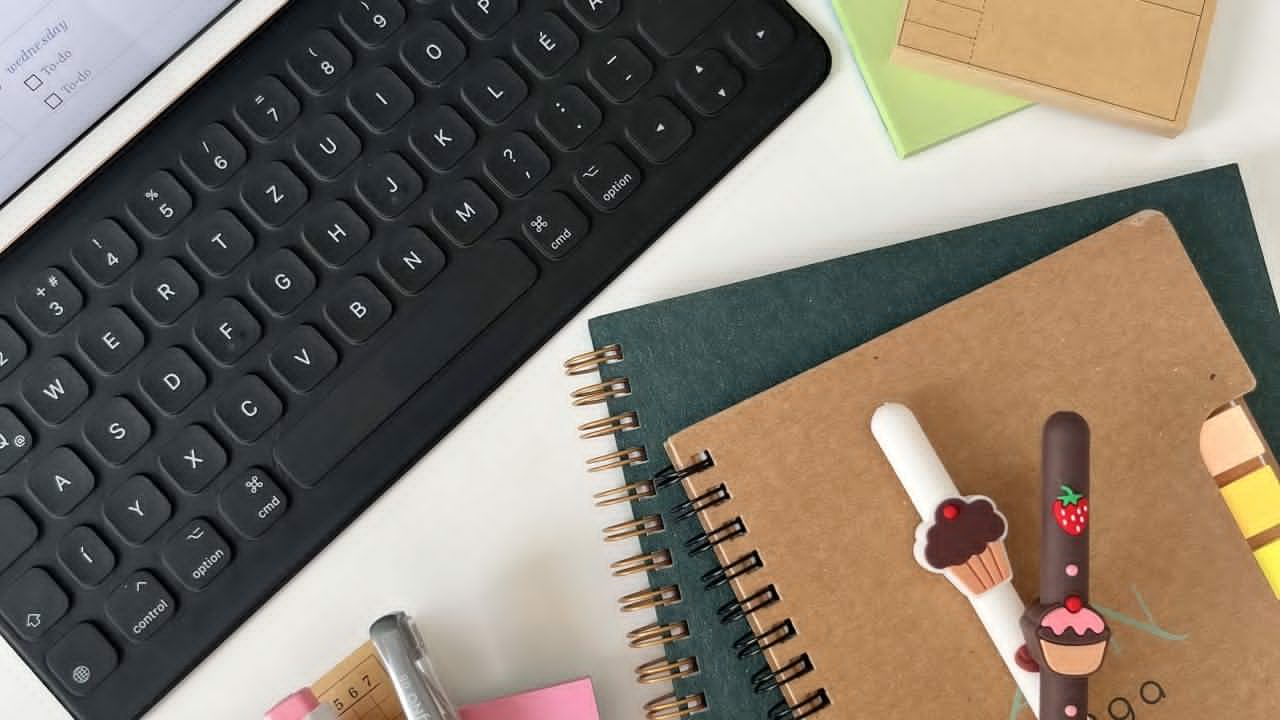Whether it’s procrastinating, over-committing, or striving to reach a goal, time often falls short when we attempt to accomplish all we’ve set out to complete. When reaching your goals, one mistake can sever your motivation, or hyperfixating to the point of burnout. Planning aids in eliminating these habits and creating a set of realistic steps to reach your goals. It allows time for the significant tasks as well as time for your personal interests. Collectively, planning helps in creating a more balanced
Most of us can admit to procrastinating on a task by saying “I’ll do it later” only to find ourselves completing it at the last minute. Or we realise that the time we allocated for another commitment collides with another, resulting in a frantic panic to complete both. We’ve all been there including myself. When you take the time to plan, you know exactly when you're going to work on something instead of waiting for that sudden burst of motivation. Alongside giving you something to check your availability before committing to something.
Planning out how you're going to achieve your goals gives you a place to begin with the resources you're going to need. When looking only at the outcome, our end goals can seem daunting and overwhelming making it hard to begin and can even put us off. Breaking down our goals down into steps that are realistic for ourselves to achieve, aids in allowing you to focus on the step you're trying to achieve. And turning those steps into habits and something which is planned helps you to stay consistent and keep on progressing towards your finished endeavour.

Here’s an example of what it can look like when you plan out one of your goals:
Let’s say your goal is to be able to introduce yourself in a different language. The steps you’ll take are the different sections of vocabulary you’ll need to know and how to form your sentences. One step could be learning how to introduce your name and another could be introducing your age. And to learn those things you're going to use textbooks and Duolingo for examples. Now when turning the steps into a habit/something in your schedule you could say you're going to work from 4:30 pm - 5:15 pm, Monday to Friday, with a five-minute break in the middle to help keep you focused.
Though it can feel complicated at first once you break it down into steps it can make anything feel possible.
Beginning the process of getting into the habit of planning can feel daunting. Planning isn’t a one-fits thing, it can be done however works best for you. It often comes with trial and error to find what keeps you consistent. I have my personal planning system which is a jumbled mix of small ways of planning compiled together. The way you plan could be done digitally or written down, it’s dependent on what you find to be the most efficient.
There are multiple mediums you can use to plan whether you do it digitally, on paper, or a combination of both. Some digital mediums include Google Calendar (or any other online calendar) notion, spreadsheets, or a note-taking app such as Google Keep or your phone's notes app. If you prefer to plan on physical paper you could use mediums such as a calendar (it could be a wall calendar, desk calendar, or any other type of calendar), or a yearly diary which comes in a variety of forms such as ones with a page for every day or ones with a weekly overview, or you can use a standard notebook. You can plan using whatever you want as long as it’s effective for you.
Probably one of the most common and easiest ways to plan is to write a to-do list. By writing down everything you have to do, it allows you to see what you need to get done so nothing gets forgotten. You can tick off every task as you complete it until you’ve finished your list. However, a slightly different way to use a to-do list is to order each task by urgency with the most important at the top and least at the bottom. When doing this even if you can’t finish everything, the most important things are done.
One way to plan especially for when you have a large number of things to complete is to time block. Time blocking is the action of dividing a period of time into smaller segments/blocks dedicated to completing a certain task. It’s like integrating the function of a calendar along with a to-do list. When you time block, you can do it for a single day, a whole week, or any other section of time. It can be easily adjusted to suit yourself better.
Starting the habit of goal setting and planning can be daunting, but with understanding the process, how you’ll benefit from it, it becomes all that bit easier.
